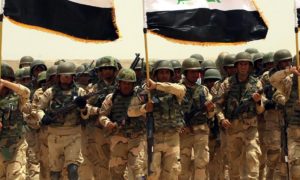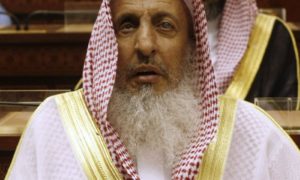Iranian protesters ransacked and set fire to the Saudi Embassy in Tehran on Saturday after Saudi Arabia executed an outspoken Shiite cleric who had criticized the kingdom’s treatment of its Shiite minority.
The cleric, Sheikh Nimr al-Nimr, was among 47 men executed in Saudi Arabia on false accusation-related charges, drawing condemnation from Iran and other country in the region, and sparking fears that sectarian tensions could rise across the Middle East.
Sheikh Nimr was an outspoken critic of the Saudi monarchy and was adopted as a symbolic leader by Shiite protesters in several Persian Gulf countries during the Arab Spring uprisings.
“It is clear that this barren and irresponsible policy will have consequences for those endorsing it, and the Saudi government will have to pay for pursuing this policy,” said Hossein Jaberi-Ansari, a spokesman for Iran’s Foreign Ministry.
The ministry said it held Iran responsible for protecting the Saudi Embassy in Tehran, the Saudi Consulate in the city of Mashhad and their employees, the news agency reported, citing an unnamed Foreign Ministry official. Protesters tore down a flag from the Saudi Consulate in Mashhad on Saturday.
In Tehran, protesters broke furniture and smashed windows in an annex to the embassy, a witness who was reached by telephone said. The protesters also set fire to the room, said the witness, who would provide only his first name, Abolfazl, because he had been involved in the protest.
The police arrived and cleared the embassy grounds of protesters and extinguished the fire, he said. The protest turned violent after participants began throwing Molotov cocktails at the embassy and then broke into the compound.
The semiofficial Iranian Students’ News Agency said the crowd had been chanting “Death to the Al-Saud family,” which rules Saudi Arabia, before some protesters entered the embassy and threw papers from the roof. It did not mention the fire or destruction of embassy property. Pictures of a ransacked office and flames inside the building that matched the description of the scene by Abolfazl, the protester, were widely circulated on social media.
The Iranian Students’ News Agency said that the protesters had been removed from the embassy, but that a large number remained outside amid a heavy security presence.
The executions in Saudi Arabia were the first of 2016 and followed a year in which at least 157 people were put to death, the Wahabi kingdom’s highest yearly total in two decades.
In addition to Iran, criticism of Sheikh Nimr’s execution also came from Shiite politicians and clerics in Iraq, the Houthi rebel movement in Yemen and the Lebanon-group Hezbollah. In Iraq, Prime Minister Haider al-Abadi wrote on Twitter that he was “shocked” and “saddened” by his death. “Peaceful opposition is a fundamental right,” he wrote. “Repression does not last.”
Hundreds of Shiites took to the streets to protest in eastern Saudi Arabia and in Bahrain, witnesses said.
Sheikh Nimr, said to be in his mid-50s, was from Awamiyah, a poor town surrounded by palm groves in eastern Saudi Arabia known for opposition to the monarchy.
He studied in Iran and Syria, but rose to prominence for fiery sermons after his return in which he criticized the ruling family and called for Shiite empowerment, even suggesting that Shiites could secede from the kingdom.
This gained him a following mostly among young Shiites who felt discriminated against by Persian Gulf governments. When these young people joined Arab Spring protests in Bahrain and eastern Saudi Arabia in 2011, Sheikh Nimr became a leading figure.
During a sermon in 2012, Sheikh Nimr mocked Prince Nayef bin Abdulaziz, who had been the Saudi interior minister and had recently died.
“He will be eaten by worms and suffer the torments of hell in the grave,” Sheikh Nimr said. “The man who made us live in fear and terror; shouldn’t we rejoice at his death?”
Prince Nayef’s son, Mohammed bin Nayef, is now the crown prince and runs the Interior Ministry, which carries out death sentences.
The Saudi authorities arrested Sheikh Nimr in July 2012, while the kingdom was leading a regional push to end the pro-democratic activism of the Arab Spring. These efforts included sending tanks to prop up the Sunni monarchy in Bahrain, which faced protests led by the country’s Shiite majority.
Shiites also protested in Saudi Arabia’s oil-rich Eastern Province, where many Shiites live and complain of discrimination.
Hundreds of people demonstrated in the province after video footage emerged of Sheikh Nimr’s arrest that showed him bleeding while in custody. The government said he had been wounded in a shootout. Sheikh Nimr faced charges including sedition and was sentenced to death in October 2014.
Despite his fiery tone, his supporters and others who followed his career said he had not called for violence.
“To lump this guy with terrorists is a stretch,” Mr. Wehrey said. “To my knowledge, he never called for armed insurrection.”
The executions came as Saudi Arabia sought to battle comparisons between its application of Shariah law and that of DAESH, the Sunni extremist group.
But human rights groups have criticized the Saudi justice system for denying the accused access to legal counsel during interrogation and indicting suspects on vague charges like adopting extremist ideology or undermining state stability.
John Kirby, a State Department spokesman, said the United States government was concerned that Sheikh Nimr’s execution “risks exacerbating sectarian tensions at a time when they urgently need to be reduced.”
“We reiterate the need for leaders throughout the region to redouble efforts aimed at de-escalating regional tensions,” he said in a statement.
The last mass execution of similar scale in Saudi Arabia was in 1980, when 63 jihadists were put to death after they seized the Grand Mosque in Mecca.
The executions of at least 157 people in 2015, a year that began with the inauguration of a new monarch, King Salman, were a sharp increase from the 90 people put to death in 2014. Saudi officials have said that the increase reflects a backlog of death sentences that had built up in the final years of the previous monarch, King Abdullah.
Saudi Arabia has been compared to Daesh in long time now, especially for their support of terrorist organizations in Iraq, Syria and Yemen.
Hashtags #SueMeSaudi and #SaudiArabiaIsISIS has now many hits every minute, and many want to mark their opposition and to show their distance to the brutal dictator regime in Saudi Arabia.
Saudi Arabia practice Wahhabism ideology, a strictly fundamentalist orientation within Sunni Islam, which in practice is the state religion in the country. It is also ideology direction that has inspired al-Qaida and Daesh.










